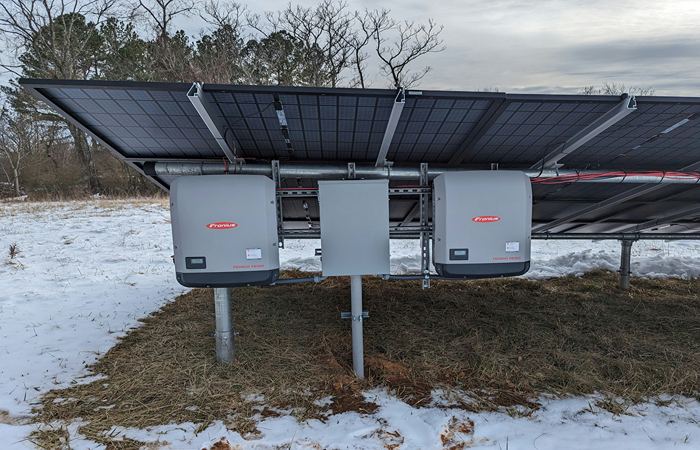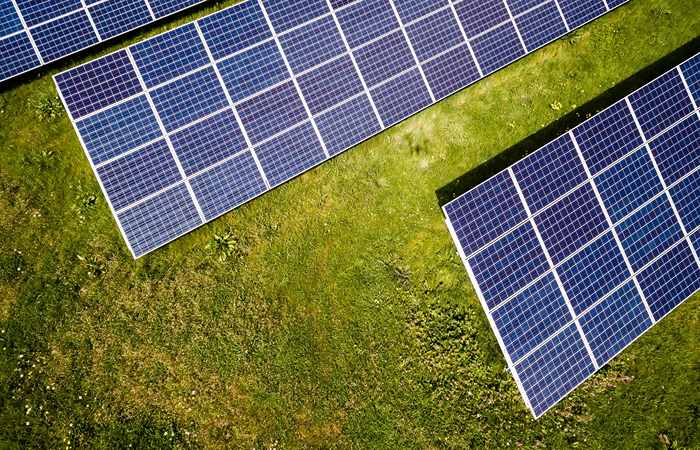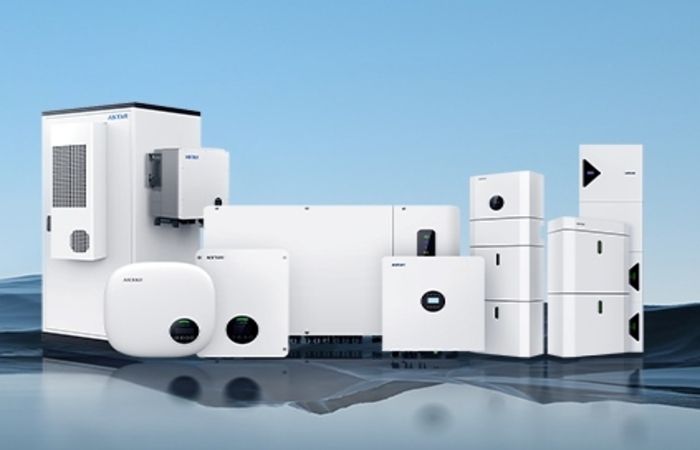Solar energy is rapidly gaining popularity as a sustainable and eco-friendly power source. Central to the effective use of solar energy is solar inverters, devices that convert the direct current (DC) generated by solar panels into alternating current (AC) that can be used by household appliances.
Understanding the various types of solar inverters and their specific applications is crucial for anyone considering solar energy systems.
What is a Solar Inverter?
A solar inverter is an essential component of any solar power system. Its primary function is to convert the DC electricity produced by solar panels into AC electricity. This conversion is necessary because most home appliances and the power grid operate on AC power.
Types of Solar Inverters
Solar inverters come in several varieties, each suited to different applications and needs. The main types are on-grid inverters, off-grid inverters, and hybrid inverters.
On-Grid Inverters
Function and Applications
On-grid inverters, also known as grid-tied inverters, are designed to work in systems connected to the public electricity grid. These inverters synchronize the solar power they generate with the grid’s AC power.
Advantages and Disadvantages
On-grid inverters offer several benefits, including the ability to sell excess power back to the grid, potentially reducing electricity bills. However, they do not provide power during a grid outage unless paired with a battery backup.
Off-Grid Inverters
Function and Applications
Off-grid inverters are used in solar power systems that are not connected to the electricity grid. These systems rely entirely on solar power and possibly other renewable sources like wind or hydro.
Advantages and Disadvantages
The main advantage of off-grid inverters is their independence from the grid, making them ideal for remote locations. However, they require a robust battery storage system to ensure a continuous power supply, which can be expensive.
Solar Hybrid Inverters
Definition and Features
Hybrid inverters combine the functionalities of both on-grid and off-grid inverters. They can work with the grid and have the capability to store energy in batteries for use during power outages or when solar generation is insufficient.
Benefits of Using Hybrid Inverters
Hybrid inverters offer greater flexibility and reliability. They allow users to store excess energy and use it when needed, providing a seamless power supply regardless of grid status.
Also Read: Solar Plate Technology and Types of Solar Panels
Difference Between PV Inverter and Hybrid Inverter
PV Inverter Overview
A PV (photovoltaic) inverter is specifically designed to convert DC power from solar panels into AC power for immediate use or to feed into the grid. They are typically used in grid-tied systems without battery storage.
Hybrid Inverter Overview
Hybrid inverters, as previously mentioned, can manage both solar power conversion and energy storage, making them suitable for a wider range of applications.
Key Differences
The primary difference lies in energy storage capabilities. PV inverters cannot store energy, while hybrid inverters integrate battery storage, offering enhanced functionality and energy management.
Low Voltage and High Voltage Inverters
Definition of Low Voltage Inverters
Low-voltage inverters operate at a lower DC voltage range, usually between 12V and 48V. They are often used in residential solar systems and small-scale applications.
Definition of High Voltage Inverters
High-voltage inverters work at higher DC voltage levels, often exceeding 150V. These are typically used in large-scale commercial and industrial solar installations.
Applications and Differences
Low-voltage inverters are simpler and safer to install, making them ideal for home use. High voltage inverters, while more efficient for large-scale systems, require more stringent safety measures and professional installation.
Why Low Voltage Hybrid Inverters Are Used in Pakistan?
Energy Needs and Infrastructure in Pakistan
Pakistan’s energy infrastructure often faces challenges, including frequent power outages and load shedding. Low-voltage hybrid inverters offer a reliable solution by providing a continuous power supply and easy integration with existing systems.
Benefits of Low Voltage Inverters for the Pakistani Market
Low-voltage hybrid inverters are cost-effective and easier to maintain, making them a popular choice in Pakistan. They provide flexibility in energy management and ensure that homes and businesses have a stable power supply despite grid unreliability.
Famous Brands of Low Voltage Solar Hybrid Inverters in Pakistan Market
Overview of Popular Brands
Several brands stand out in the Pakistani market for their reliability and performance in low-voltage hybrid inverters. These include:
- Huawei
- Solis
- Growatt
- GoodWe
- Inverex
Key Features and Benefits of Each Brand
- Huawei: Known for its advanced technology and robust performance, Huawei inverters offer high efficiency and smart energy management features.
- Solis: Offers affordable and reliable inverters with excellent customer support, making them popular among homeowners.
- Growatt: Provides a wide range of inverters with user-friendly interfaces and reliable performance.
- GoodWe: Known for their durability and efficient energy conversion, GoodWe inverters are suitable for various residential and commercial applications.
- Inverex: A local favorite, Inverex offers cost-effective solutions with reliable after-sales service.
Conclusion
Solar inverters are the heart of any solar power system, converting solar energy into usable electricity. Understanding the different types of inverters, such as on-grid, off-grid, and hybrid, as well as the distinctions between low-voltage and high-voltage inverters, is crucial for making informed decisions. In Pakistan, the use of low-voltage hybrid inverters is particularly advantageous due to their cost-effectiveness and reliability. With several reputable brands available, consumers have access to a range of quality options to meet their energy needs.
FAQs about Solar Inverters
What is the primary function of a solar inverter?
The primary function of a solar inverter is to convert DC electricity generated by solar panels into AC electricity that can be used by household appliances or fed into the grid.
Can I use an off-grid inverter with a grid-tied system?
No, off-grid inverters are designed for systems that operate independently of the grid. For grid-tied systems, you would need an on-grid or hybrid inverter.
What makes hybrid inverters a good choice for households?
Hybrid inverters are a good choice because they combine the benefits of both on-grid and off-grid systems, providing a reliable power supply and the ability to store excess energy for later use.
How do low-voltage and high-voltage inverters impact efficiency?
High-voltage inverters tend to be more efficient for large-scale systems due to reduced energy losses. Low voltage inverters are typically more suitable for smaller residential systems, offering safer and easier installation.
Are there any government incentives for using solar inverters in Pakistan?
Yes, the Pakistani government offers various incentives to promote the use of solar energy, including tax exemptions and subsidies, making it more affordable for individuals and businesses to adopt solar technology.



